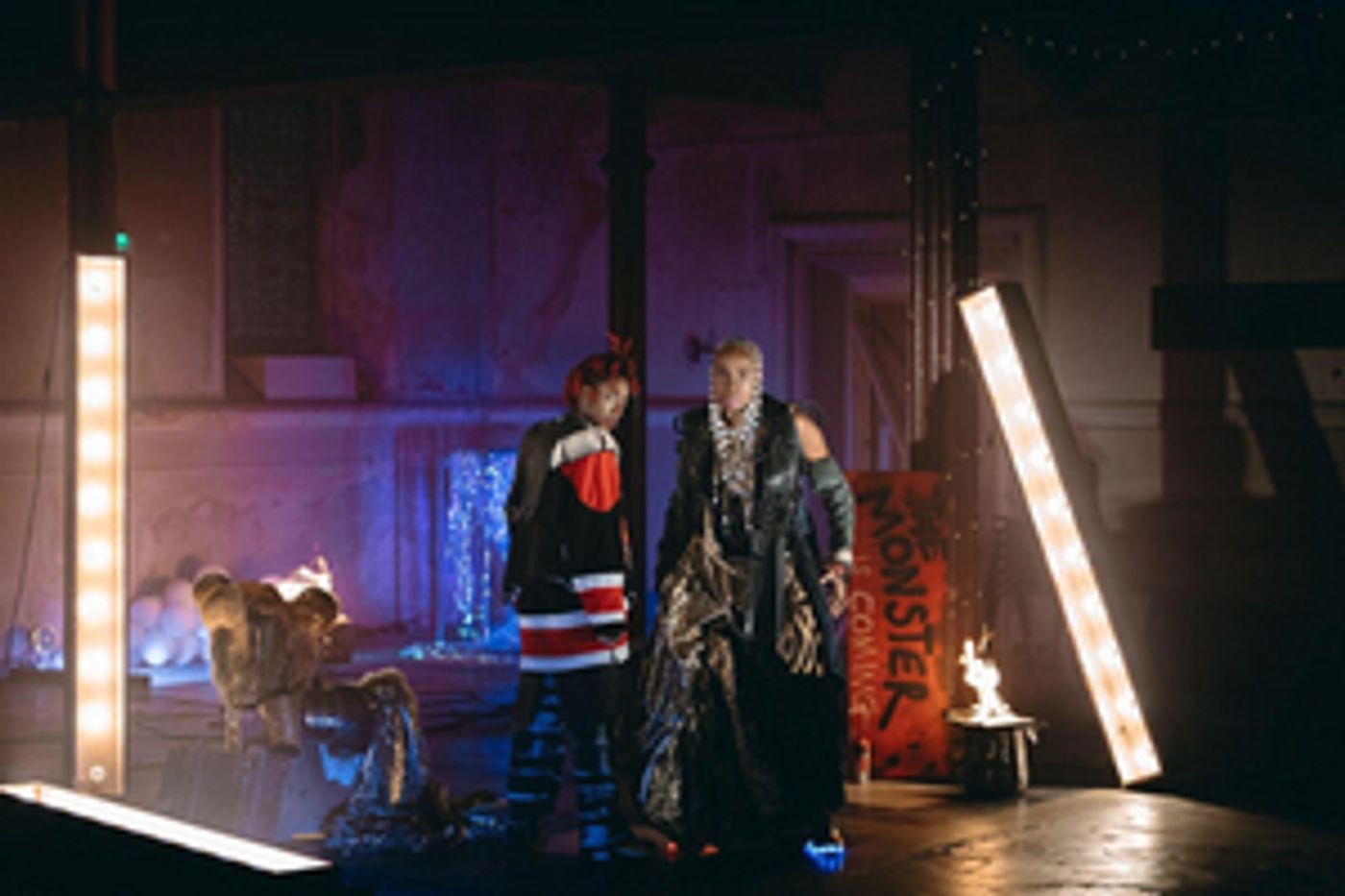World Premiere Of Emma Frankland's GALATEA Comes To Brighton Festival in May
Performances run 5 - 21 May 2023.

The work of Shakespeare's best-selling but now long forgotten contemporary John Lyly, will be brought vividly to life in a field on the South Coast this Spring in a radical revival of his early modern play Galatea, adapted by Emma Frankland and Subira Joy and edited by theatre historian Andy Kesson, in a production that fuses together groundbreaking research and experimental theatre. The production will be co-directed and designed by Mydd Pharo of Cornish landscape theatre company Wildworks and presented by Marlborough Productions.
Galatea was written in the 1580s and performed in front of Queen Elizabeth I. Now, this tale of love, joy and the importance of welcoming outsiders will be introduced to new audiences as a resonant story for modern times.
Set in a world where gods walk among the mortals, this unapologetically queer story follows different characters - all lost in the woods. Two young trans people find love whilst escaping oppression; a shipwrecked migrant searches for his family; goddesses clash; parents fret; an alchemist brews magic and a teenage Cupid sets hearts on fire - causing chaos and near disaster.
Galatea is an ambitious collaboration between queer theatre maker Emma Frankland, LGBTQIA+ culture catalysts Marlborough Productions, Wildworks and the brand new research project Diverse Alarums, funded by the Arts and Humanities Research Council. This new version of Galatea has been commissioned by Brighton Festival and will be presented outdoors at a large scale, with a vibrant, large cast of LGBTQIA+ and Deaf performers, in nearby Shoreham-by-Sea. Members of the local community will be invited to join the performance through a process led by Wildworks, who bring 20 years experience of working in the landscape and creating work with community participants.
Director and adaptor Emma Frankland is a live performance and theatre artist whose work is driven by honesty, action and a playfully destructive DIY aesthetic which generates strong visual imagery. Her text "None of Us is Yet a Robot - Five Performances on Gender Identity and the Politics of Transition" was published by Oberon Books. In adapting Galatea she worked with Black, trans, genderqueer spoken-word performer and activist Subira Joy and for BSL translation with actor and Deaf advocate Duffy. All performances will be in English and BSL and will be captioned.
The revival of Lyly's Galatea forms part of academic research project Diverse Alarums, which explores the potential for early modern plays in contemporary performance to enable new creative and engagement opportunities for marginalised performers, practitioners, and audiences. The project builds on Emma Frankland and theatre historian Andy Kesson's collaboration over many years and seeks to discover a more diverse early modern performance canon. Diverse Alarums combines Andy's work with Sandra Nelson, a specialist in contemporary media, audience communities and transgender narratives, and Erin Julian, a specialist in early modern archival records, performance and gender.
Speaking about Galatea, Emma Frankland said "I've been working towards this production for 7 years now and I'm really proud to share the results of such a long period of development. This production will be the result of so many brilliant artists, writers and thinkers who have been part of the journey."
"It really feels like a collaboration with the original text - what Lyly wrote is beautiful, funny and exciting.. especially because of how exciting it is, as a trans person, to see yourself reflected in such a historic play, when usually we are supposed to not exist! I think that our adaptation builds on what Lyly wrote and makes it really relevant for today. Yes it's a play about two trans people in love, but it's about acceptance in general and about how a community thrives when it is open to change. When it is accepting of those who are different."
Andy Kesson said "There are so many reasons to be excited about staging Lyly's Galatea, which has a claim to being Shakespeare's favourite play, a work Shakespeare never quite got out of his system which set the scene for what we now think of as Shakespearean comedy. But I'm even more excited to see what happens when we stage classical plays in a production which centres all of our creatives and celebrates the identities most often marginalised in classical theatre, and everywhere else in modern life".
John Lyly (1554-1606) was a writer and dramatist in the reign of Queen Elizabeth I who quickly became famous for his eclectic writing style, humour and influence and whose work outsold the likes of William Shakespeare, Christopher Marlowe and John Donne. Unlike the work of many of his contemporaries, Lyly's work regularly focuses on central female figures and queer storylines, prisoners of war and children with learning difficulties. His play The Woman in the Moon features the longest part for a female character in all English early modern drama. He was the best-selling writer of his era and a core influence on Shakespeare, in particular, his comedies A Midsummer Night's Dream, Twelfth Night and As You Like It.
Videos

